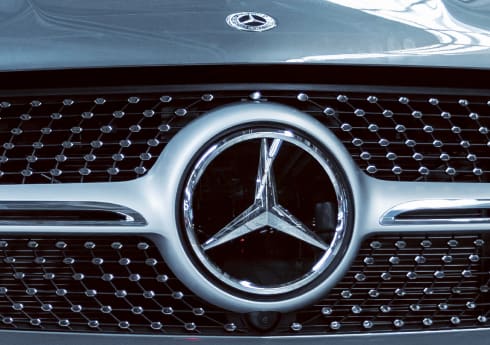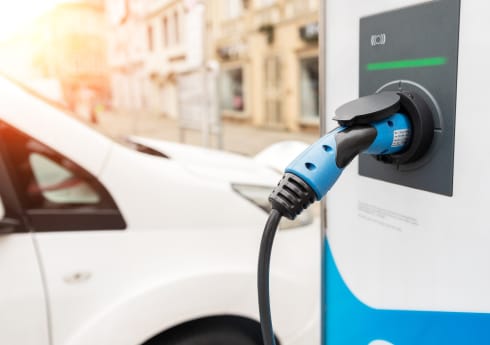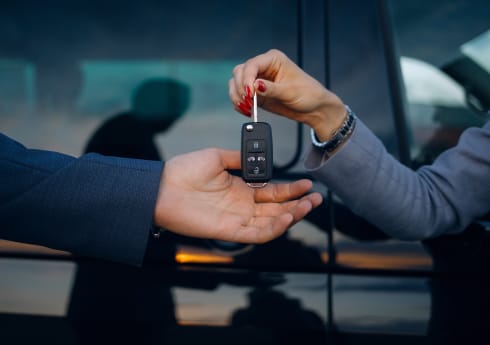Electric Van Grants in the UK: Business Guide to Plug-in Grants
The electric van grant in the UK is an essential supporting initiative for businesses. The Plug-in Van Grant (PIVG) can save you money if you want to hire electric vans.
But what is the grant? And how do you apply? Well, we’re on hand with all the latest information on how to get started and save your business cash. And you can also compare the market for EV hire options to get you started.
(Updated Tue, 24 October 2023)

What’s the electric van grant (Plug-in Van Grant)?
The Plug-in Van Grant (PIVG) is a government-funded scheme to help businesses reduce the cost of buying electric vans.
Think of it as a business grant for electric vans. It’s part of the UK government’s step towards stopping the sale of fossil fuel vehicles by 2030. By 2035, 100% of new cars and vans must be 0% emissions at the tailpipe.
To help with that shift, the grant gives your business a discount whenever you buy a low-emission vehicle. That helps with the affordability of EVs, as they’re still quite pricy.
To meet the Plug-in Grants criteria the van must:
- Be within the N1, N2 or N3 category defined under EU Directive (EC) 2007/46/EC.
- Meet a 60+ miles of zero emissions driving range.
- Have less than 50g/km CO2 emissions (50gCO/km).
The plug-in vehicle grant launched in 2012. The UK government has reduced the grant for high-cost electric vehicles and switched its attention to other vehicle types and cost ranges.
Because, initially, the grant was for cars, vans and trucks. But the car grant isn’t available anymore (bad luck car owners).
However, for vans and trucks plug-in grants were extended in March 2022 and will continue at least until the end of 2023’s financial year.
How does the electric van grant work?
The Plug-in Van Grant is automatically applied to vehicles that meet its criteria. Which is good news, eh? There’s no paperwork to complete as you can claim it for vans and trucks at first registration.
All you have to do is buy the electric van (PIVG) or truck (PITrG), then the government reimburses the cost of the grant to the van dealer.
However, for guidance on PIVG eligibility and applications check the Gov page. Remember, not every vehicle is eligible and hybrids (a mix of EV and petrol/diesel) typically won’t meet the PIVG criteria.
If you want to apply for a business grant for electric vans there’s a process for that. For a chance for it to become eligible, you can send an email to pluginapprovals@vca.gov.uk requesting a scheme number.
iCompario tip: Electric van hire gets you started in no time
Want to cut to the chase and add electric vans to your fleet? If you don’t want to buy an EV then hiring is another way to save money, because you don’t have to pay outright for the vehicle at all!
This means the government van grant won’t apply. But you can choose between flexible EV hire and long-term EV hire. Both options have you covered, whether you need an electric van for a short period or over a bunch of years.
All you need to do is compare the market. And from there you can pick and choose from the recommendations until you find a perfect business match.
What savings do you get with the electric van grant?
Under the Plug-in Grant’s rules, some vans can be sold with a 35% discount. The amount is taken off the purchase when you buy the van.
But remember, savings depend on the type of van you’re buying. For example:
- The total saving for a 3.5 tonne electric van will get you around £5,000 in savings.
- But for a 2.5 tonne electric van it’ll be around the £2,500 mark.
- Heavier truckers can be around the £16,000 area (capped at 20% of the purchase price).
There’s a limit of government grants for electric vans. You can make 1,000 grant applications for every customer. But that’s not really a problem if you’re not intending, like most folks, to get 1,000 EVs in a bulk buying frenzy.
But do remember the grant updates from time to time, so savings may vary from 2023 to 2024, 2025 and further into the future.
Plug-in Grants also offer different savings between small vans, large vans and trucks. We break this all down in the lists below for you.
Small vans plug-in grant
- Grant amount: Maximum of £2,500.
- Gross weight limit: 2,500kg.
- CO2 limit: Less than 50g/km.
- Travel range with zero emissions: 60 miles (96km).
Large vans plug-in grant
- Grant amount: Maximum discount of £5,000.
- Gross weight limit: Between 2,500-4,250kg.
- CO2 limit: less than 50g/km.
- Travel range with zero emissions: 60 miles (96km).
Small trucks plug-in grant
- Grant amount: Maximum of £16,000.
- Gross weight limit: Between 4,250kg-12,000kg.
- CO2 limit: At least 50% less than standard Euro VI vehicles carrying the same cargo capacity.
- Travel range with zero emissions: 69 miles (96km).
Large trucks plug-in grant
- Grant amount: Maximum of £25,000.
- Gross weight limit: Heavier than 12,000kg.
- CO2 limit: At least 50% less than standard Euro VI vehicles carrying the same cargo capacity.
- Travel range with zero emissions: 6 miles (96km).
Complete list of eligible Plug-in Van Grant vehicles
Trying to work out if your van is eligible for the electric van grant? Well, we’ve got a complete list in the below table. Want to find your van? Do a search for your four-wheeled wonder!
You can also find the list of low-emission vehicles eligible for PIVG on the Gov site.
This can update throughout any given year, but the below list is accurate as of February 2023 for Plug-in Grants. But it’s worth checking back from time to time as other vehicles may be added to the list.
List of eligible vans for PiVG
| Small vans | Large vans |
| Citroën e-Berlingo | BD Auto eTraffic |
| Fiat e-Doblo | BD e-Boxer |
| Maxus eDeliver 3 (short wheel base) | BD e-Ducato |
| Nextem Orca | BD e-Relay |
| Nissan e-NV200 | Citroën e-Dispatch |
| Nissan Townstar | Citroën e-Relay |
| Nissan Voltia | DFSK EC35 |
| Peugeot e-Partner | Fiat e-Ducato |
| Renault Kangoo E-Tech | Fiat E-Scudo |
| Renault Kangoo ZE | Ford E-Transit (Leader) |
| Renault Zoe Van | Ford E-Transit (Trend) |
| Toyota Proace City Electric | LDV EV80 |
| Vauxhall Combo-e | LEVC VN5 |
| MAN eTGE | |
| Maxus eDeliver 3 | |
| Maxus eDeliver 3 LWB Chassis Cab | |
| Maxus eDeliver 9 | |
| Maxus eDeliver 9 MC L3 Chassis Cab | |
| Maxus eDeliver 9 LC L4 Chassis Cab | |
| Mercedes-Benz eVito | |
| Mercedes-Benz eVito Premium | |
| Mercedes-Benz eVito Progressive | |
| Mercedes-Benz eVito eSprinter | |
| Peugeot e-Boxer | |
| Peugeot e-Expert | |
| Renault Master ZE (3.1 and 3.5 tonnes) | |
| Renault Trucks Master ZE | |
| Toyota Proace Electric | |
| Vauxhall Vivaro-e | |
| Volkswagen ABT e-Transporter | |
| Volkswagen ID. Buzz Cargo Commerce | |
| Volkswagen ID. Buzz Cargo Commerce Plus |
List of eligible trucks for PiVG
| Small trucks | Large trucks |
| FUSO eCanter | Electra e-Compact |
| Paneltex Z75 | Electra e-Star 27-350 |
| Dennis Eagle E-Collect RCV | |
| Renault Trucks D-Range |
What about government grants for electric charging points?
The UK government also offers EV charge point grants to help with the business costs of installing charging stations.
It’s well worth checking that out, too, so you can maximise your business savings and make the most of your transition to EVs.
We think it’s good business practice to get started now than a few years down the road. And we’ve put together this Workplace Charging Scheme explainer to help you understand what it’s about so you can easily start your applications.
Need help with your van hire plans?
Okay, you want an electric van grant! Where do you get started with EVs? Well, now’s the time to do a UK market search. It’s free to do and you’ll find fantastic deals in no time:
- Enter your business details.
- We search the market.
- You pick your van recommendations.
Doing this saves you a load of time and it’ll save you money in the long-term, too.



